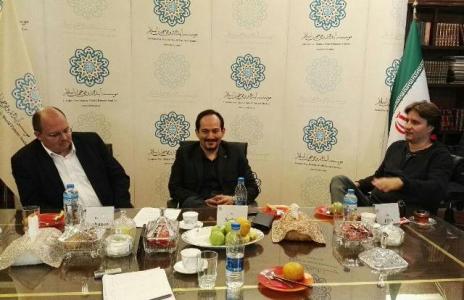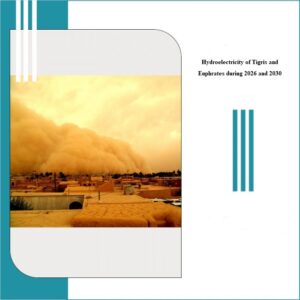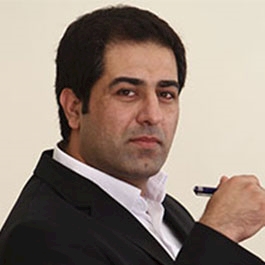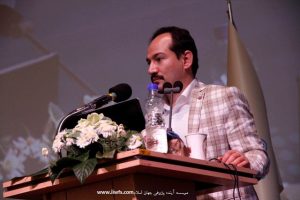IIWFS: I want to directly go to a simple but frank question! The question is why Russia entered in Syria? Is it a long term strategy to chase interest in the Middle East? Or tactical show off of Russia as a great power? Or maybe gathering some wildcards to a big bargain with the U.S on Ukraine or other places?
Well… I can only suggest my vision… Definitely this is very good to have an open and clear discussion about the Russian and Iranian scholars’ views about what’s happening in the region. The question you are asking is indeed seems to be simple but at the same time it’s like an iceberg that the main part of it is down the water. Definitely there are several factors that determine Russia stands on Syria. You can mention both an attempt to demonstrate its importance to the middle east; also attempt to create additional levels in relations between Russia and the west in order to affect the U.S behavior; also the results of domestic reason reestablishing itself domestically as a super power it strives to become as a leading force, key player in the region; also the national security dimension, which the Russia is naturally concerned about the rise of extremist jihadism in the middle east plus the economic interests that should not be ignored !
one of the main drivers behind the Russian foreign policy toward the Syria, middle east or at least Syria and Levant region is a person unfortunately I cannot name here due to some reasons but he is heavily involved in interest of power and energy sector and his company is very interested in Syria specially in possible oil and gas reserves could be discovered in off shore territories of this country, plus the military presence is also quite important to Russia! Russians clearly declared that they would be interested in keeping Hmiemim airbase and Tartus naval base in Syria.
At the same time, I know that I just named several factors, the main difficulty in this situation is related to the fact that in different periods, the importance of these factors has changed. Largely you could distinguish 3 different periods of Russian presence and Russian interest in Syria. So the first period could be named between 2011 and roughly till the end of 2013, that time it was rather as the cold begin of ambitions.
The problem is that at least in the west and we as scholars in Russia, we underestimated Putin, we thought that he is just going to be the same; he was absolutely different from the one that came into power from 2000 to 2008, he came into power to be more disappointed in the west in the failure of reset and the bad experience that Russians had in west in Libya and in the case of s300 supplies to Iran. Because Moscow expected that for these gestures, it will receive some preferences on the west side or at least some kind of thank you to Moscow. But formally it was miscalculations in terms of language between the west and Russia. Because in Russia every positive move it is believed should be thanked, and in west every positive move should be taken as granted because you should behave correctly in all situations, so that’s why Russians has not heard any positive words about suspension of S300 supplies to Iran. There was also additional factor that made the Russians purely disappointed in the west.
So as a result their first moves in Syria definitely first of all to preserve the Russian economic and political and military interest, to demonstrate the west that Russians opinion shouldn’t be taken as granted and Russians can be a real problem maker if their interests are underestimated. But situation has changed after November 2013. And that was the one the turning points when quite a large group of Chechens’ fighters joined the struggle on the side of Syrian opposition, and that were basically the joining of these people from Pankisi Gorge who previously has he founded refugee from Chechenia. It figured out very interesting perception on the Moscow.
I have been arguing a lot with my colleagues in Russia that probably the international radical Islamist Jihadist movements or I probably better name them Monafegin, because I don’t believe these people have much in common with real Islam. That these people definitely can affect the situation in Russia but not to the extent that is expected by Russian authorities. Because well until now the radical Islamist movement on inside of Russia they had purely authentic origins and not that they related to the international radicalism but at the same time it is probably the most in the perception existed in the Moscow. Because the people who came to power in Russia in 2000 they naturally believe that, currently believes in possibility of over spreading of this instability to other spaces…..
Basically by September 2015 that they deployed their military forces, they realized as early as I guess June or July 2015 that the Assad’s government was about to fall and for the Russian was another historical parallel with Libya.
The believed that it’s important for futures stability to contain this radical extremists within the Middle East to save, to preserve the government institution in the country. Basically in September they had to choose between bad and worse in area to get in the game without no idea how to finish it and another option was to let thing go as it was and to see the collapse of regime.
So between worse and bad, they chose bad and they started the third period that is period of Russian military presence. We can honestly say that Russian miscalculate in terms of capacities of Syrian government struggle to retake the territories, And the initial calculations said the operation would be 3 or 4 months. But they failed. And now mostly realized that it is going to stay in Syria for a quite long time, which was basically hopeless for many nongovernmental experts. But from the very beginning Russians supposed to soak into the conflict and now one of the main priorities is the need to end this conflict as soon as possible and they broadly find a way to bring some kind of stability in Syria.





